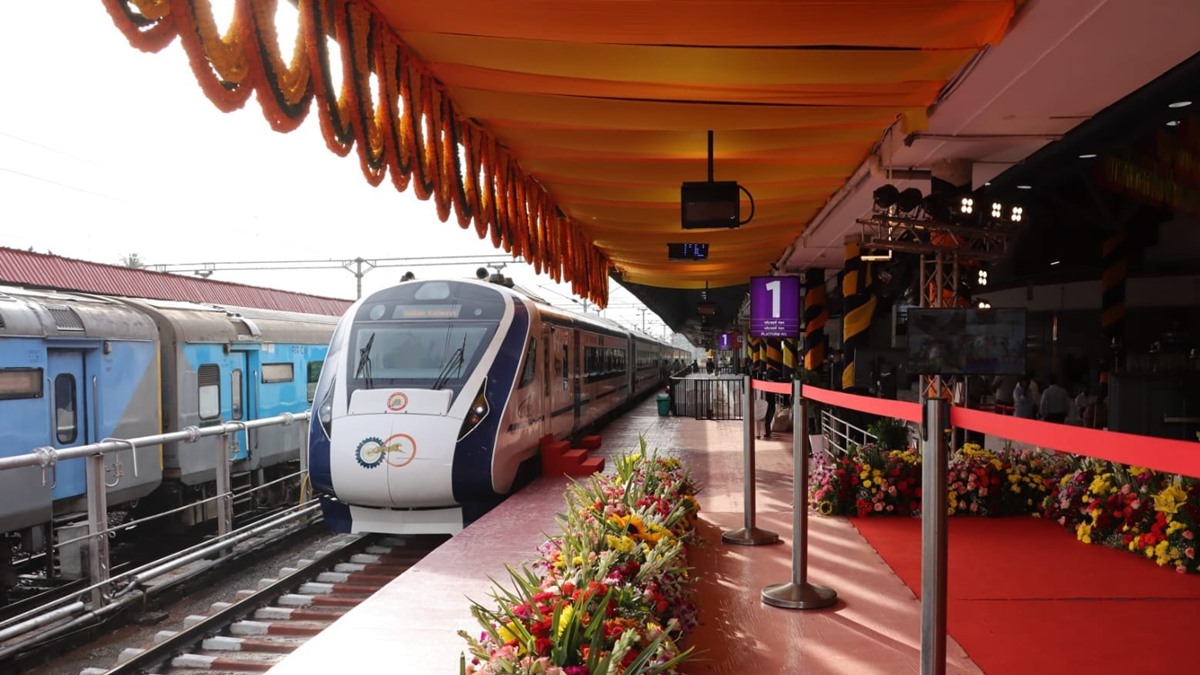
COP27: Climate finance scarce, early warning systems key to saving lives, says Bhupender Yadav
Cairo, Nov 07: Union Environment Minister Bhupender Yadav on Monday said climate adaptation in the form of early warning dissemination is key to safeguarding lives and livelihoods from cascading natural hazards causing substantial losses around the world.

Addressing the UN Climate Conference (COP27) in Egypt, Bhupender Yadav said, "We fully support the Secretary General's agenda to achieve Early Warnings for All. The global pace of climate mitigation is not enough to contain the rate of climate change. There is an urgent need for the world to acknowledge the cascading natural hazards that cause substantial losses around the world."
"But these issues focus our minds for a moment and then soon lose attention as the countries most able to do something about it are the least affected. They are also the biggest contributors to climate change," he said.
"The most vulnerable regions are located between the tropics of Cancer and Capricorn. Much of the developing world, including India, lies between these tropics. Public expenditures and loss of revenues following the onset of external disasters have already begun to rise in this region with the least coping capacity," he added.
"The intensification of tropical cyclones in the Pacific and Caribbean means that some small tropical states have lost 200% of their national income in a few hours. Instances such as these could have devastating consequences in countries that do not have sufficient means to cope with them," he said.
"With climate finance still scarce, climate adaptation in the form of early warning dissemination is key in safeguarding lives, and livelihoods. Early Warnings For All play a part in not just containing the immediate physical impacts, but also mitigating the far-reaching long-term socio-economics implications that follow," the minister said.
"India has been working on strengthening end-to-end early warning systems for all hydro-meteorological hazards. This has led to concrete results: We have reduced mortality from cyclones by up to 90% over the last 15 years. On both east and west coasts, we have nearly 100% coverage of early warning systems for cyclones. Similarly for other hazards - such as Heat waves - we are making swift progress, leading to much greater resilience of our communities," he stressed.
Over the last few years, we have made concerted efforts towards making early warning impact-based as well as more easily understandable and actionable by communities. We have integrated hazard, vulnerability and exposure information to develop Web - DCRA (Dynamic composite Risk Atlas) to enable swift and advanced action on early warnings.
The Cyclone Warning Division (CWD) at IMD, New Delhi also acts as a multilateral Regional Specialised Meteorological Centre for monitoring, predicting and issuing warning services on tropical cyclones developing over the north Indian Ocean (one of the six centres in the World) along with 13 countries in Bay of Bengal and Arabian Sea region. The collaboration helped in the exchange of meteorological data from the Bay of Bengal (BoB) and Arabian Sea countries to IMD and improved monitoring and forecast.
Moreover, the meteorological data of satellite & radar, and model guidance from IMD along with Tropical Cyclone Advisory Bulletins helped the countries to minimize losses of lives. As an example, the number of lives lost has been minimised, being limited to 100 due to tropical cyclones during the last 10 years, not only in India but also in all the countries in the Bay of Bengal and Arabian Sea region for which IMD provides tropical cyclone forecast and advisories.
We would now like to maximize the full potential of Early Warning Systems for not just reducing the loss of lives but also livelihoods and national development gains. India has spearheaded the Coalition for Disaster Resilient Infrastructure (CDRI) which is working towards developing applications of climate forecast and early warning for reducing infrastructure losses and disruption in basic services.
"Climate finance is still a mirage, and effective climate adaptation such as Early Warnings For All helps us collectively in our region toward reducing vulnerabilities and ensuring preparedness and swift and timely response to natural hazards," he said.


 Click it and Unblock the Notifications
Click it and Unblock the Notifications

































